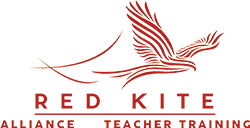The opportunity to reflect on the diversity of beliefs and religion is central to the Religious Education curriculum at Nidderdale. Fundamentals of beliefs, faith and religion will inform their understanding of the impact of the major world religions and inspire an exploration of these. Philosophical belief will be developed, discussed, and questioned in order for students to be adept at analysing and evaluating their various influences. The historical events linked to religion, or indeed in the name of religion will be incorporated to provide context and how this is relevant to a Twentieth Century World.
The Key Stage Three curriculum for Religious Education inspires students to develop their understanding across all religions. The adults in the classroom provide an environment based on a variety of learning styles to allow the students to investigate the structures and beliefs of each of Islam, Buddhism, Hinduism, Sikhism and Christianity. Students are also provided with the platform for their own questioning about different levels of belief and why people, across the world, can be more, or less devout in different religions. A good foundation of understanding regarding the diverse beliefs and practices in contemporary society is essential preparation for young people to equip them for life in the wider world.
Student learning in the classroom is enriched by visitors from Christianity and other faiths and trips to places of worship, such as a Mandir, a Gurdwara or a Mosque all provide context and a source of empathy for these places of worship. Visitors can also provide insights into such events as the Holocaust, which allows students to understand that sometimes persecution can occur within or against religion. The Religious Education curriculum will provide students with the tools to discuss examples of this, which can inspire a critical and moral mind, beyond the classroom.
Students at Key Stage Four will have the opportunity to follow the AQA Religious Studies Specification, this incorporates the study of religion, beliefs, teaching and practices of Christianity and Islam. The students then follow a thematic approach, consolidating their knowledge and understanding from their experience throughout their secondary curriculum. Relationships and families, religion and life, peace and conflict, crime and punishment and human rights including social justice all are developed through this study.
Nidderdale’s curriculum brings RE, or religion and worldviews, into the Twenty-first century as a broad, critical and reflective subject, where students can present valid arguments with examples from religion to provide necessary justification.

